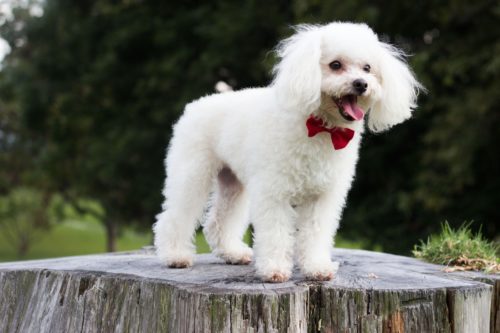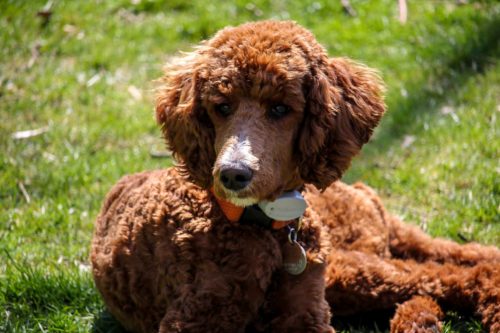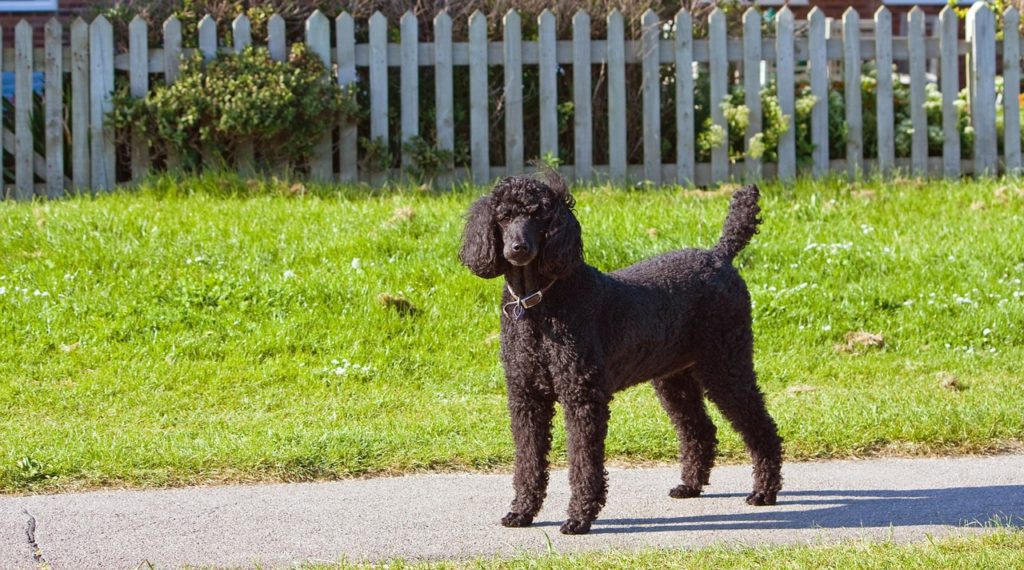Although Poodles are often viewed as fluffy, fancy dogs that are primarily known for their looks, the number one Poodle characteristic is intelligence. Due to their intelligence, Poodles are fantastic dogs for tasks and tricks because they are successful at most jobs they are properly trained to do. In fact, Poodles are unofficially known as the second most intelligent dog, with the Border Collie coming in first place.
Part of the reason Poodles are praised for their intellect is because they have a long history of working and accomplishing tasks. Around the 16th century, Poodles originated as water retrievers and hunters in Germany. In modern times, Poodles are still excellent working dogs, serving as therapy dogs, seeing eye dogs, guard dogs, and more. Whether you have a standard, miniature, or toy Poodle, with proper training, your Poodle will become a pro at whatever you aim to teach him.
If you recently brought home a new furry family member, you may be wondering how to train a Poodle. Even though these dogs are highly intelligent, Poodle training is still essential to ensure your dog learns what is allowed and what isn’t.

In fact, some people assume that since Poodles are known for being smart that they do not need as much training, but this is incorrect. Although Poodles are dogs that aim to please, you must still dedicate an adequate amount of time to establishing a training routine.
Potty Training Your Poodle
Most Poodle owner’s first goal is potty training. Fortunately, some Poodles can be trained in as short as a few weeks when a strict routine is in place. The key to any training is repetition and consistency.
Although it seems like you are creating a training routine for your Poodle, in reality, you need to be equally committed to it as well. Train your dog to go to the bathroom outside by taking your dog out to the same places at the same times each day.
The consistency with the times and place will help your Poodle realize that this is where he is supposed to go to the bathroom. Poodles love their families and aim to please, so they respond well to positive reinforcement. When your Poodle does his business outside, reward him with plenty of praise and a small treat.
Poodles are very active dogs that like large, open environments, so they may be resistant to crate training. However, if you are going to be away from the house for short periods of time while you are still in the early phases of canine potty training, try crate training to keep your Poodle from having an accident indoors.
Socializing Your Poodle
Although Poodles are highly intelligent and trainable, an area they can struggle with is sociability. Poodles are great family dogs, but it is important to socialize your dog from a young age so that he is comfortable and friendly with a variety of dogs and people. Training a Poodle to be social is not only important so that they are friendly, but also because they require regular grooming and handling.
Since Poodles have hair that will continue growing if it is not cut, they require frequent trips to the groomers. For this reason, it is important that you participate in handling training such as touching your Poodle’s paws as a puppy so that he is not wary of this. Always ensure that handling your dog’s socialization with other pets and people is a positive experience by rewarding your Poodle with plenty of praise.
Teaching Your Poodle Basic Commands
Another facet to Poodle training is teaching your pup basic commands. The first command you should teach your Poodle is “sit.” By teaching your pup to sit, this acts as a foundation to teach him to stay and sit still instead of jumping on guests when they enter the house. To teach your Poodle to sit, start by incentivizing him with treats.

You can eventually phase the treats out and use verbal praise, but this is the fastest way for your Poodle to understand the command. Begin by saying “sit” and slowly raising the treat above your dog’s head. Your dog’s natural line of vision should follow the treat, moving him into a seated position.
If he backs up in order to see the treat, gently place your hand on his lower back and guide it to the ground. The second your pup is sitting, give him the treat and ample praise.
Repeat this process for about five minutes, but do not train for too long or your Poodle will get bored. Continue training a couple times a day, and your Poodle will learn basic commands in no time.




